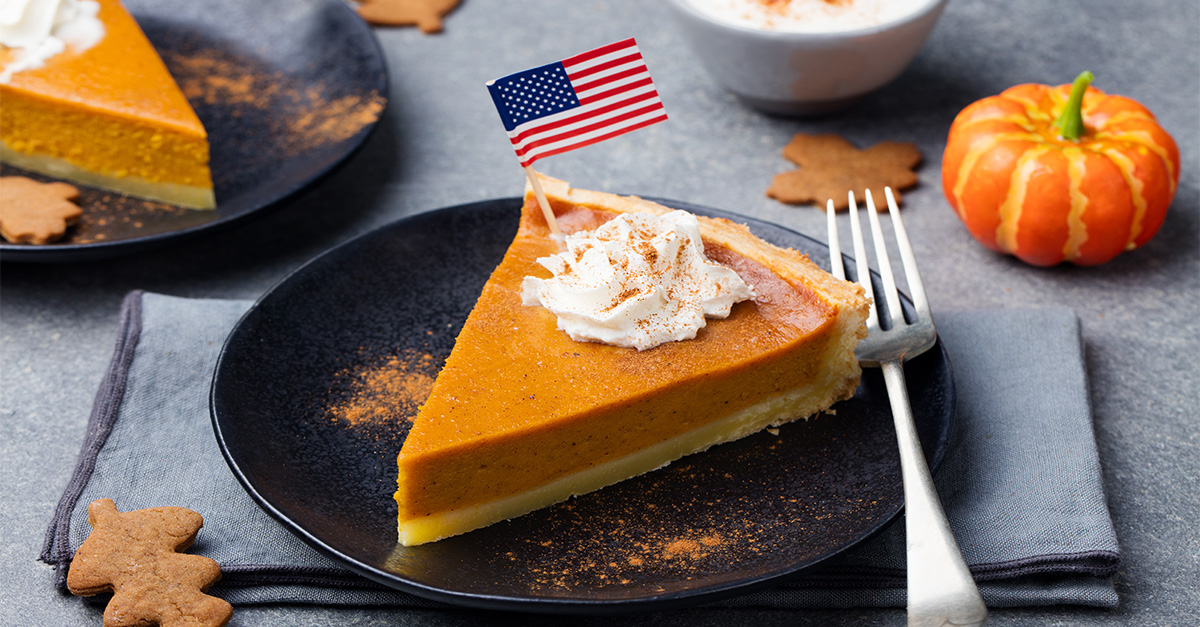


Get a free copy of Parental Rights & Education when you subscribe to our newsletter!

Freedom is not free, so as we gather with loved ones today, remember to thank God for those who pioneered this great nation into a beacon of freedom and for those who put their lives on the line to preserve it.
Thanksgiving is more than a family holiday or a mindset — it’s a national treasure.
Public acknowledgements of the providence of God have been part of the history and traditions of this nation — from the Pilgrims to the Founding Era, from the Civil War to today — and it’s important to share the true meaning of Thanksgiving. It’s an important part of our Judeo-Christian heritage. To this day, during Thanksgiving week, Congress honors National Bible Week and the Bible’s impact on America to ensure these timeless traditions remain the lifeblood of America.
The tradition of sharing a meal and giving thanks for family and freedom dates back to 1621 nearly a year after the 52 survivors of the Mayflower landed in Massachusetts and enjoyed a three-day meal with Native Americans.
Interestingly, a plantation nestled in the beautiful countryside of Virginia, famously called the Berkeley Plantation, is one of America’s best kept secrets. The former home of a signer of the Declaration of Independence, Benjamin Harrison, and the birthplace of the ninth president of the United States, William Henry Harrison, it is also the location of the actual First Thanksgiving on December 4, 1619.
When a ship sailing from England, the Margaret, landed, the first act of business by those aboard was to pray. Written orders given by the Berkeley Company to Captain Woodlief declared that their arrival must “be yearly and perpetually kept holy as a day of Thanksgiving to Almighty God.” And that’s exactly what they did — for two years. Lawmakers have worked to ensure this history is recorded, and now this tradition of prayer during the Virginia Thanksgiving Festival has been revived and is an annual commemorative event.
America’s founders intentionally encouraged public thanksgiving to God for His enumerated blessings. On September 25, 1789, the Bill of Rights was ratified by the Senate. The First Amendment was approved by Congress and sent to the states for final approval. However, after the Framers completed the Bill of Rights, Elias Boudinot, a member of the House of Representatives, said he could not think of letting the session pass without offering an opportunity for all U.S. citizens to return thanks to God for His many blessings. That same day, the U.S. House passed the following resolution:
“Resolved, that a joint committee of both Houses be directed to wait upon the President of the United States, to request that he would recommend to the people of the United States, a day of public thanksgiving and prayer, to be observed, by acknowledging, with grateful hearts, the many signal favors of Almighty God, especially by affording them an opportunity peaceably to establish a Constitution of Government for their safety and happiness.”
On October 3, 1789, President George Washington declared November 26, 1789, a National Day of Thanksgiving to thank God for the Constitution and our new American government:
“Whereas it is the duty of all Nations to acknowledge the providence of Almighty God, to obey his will, to be grateful for his benefits, and humbly to implore his protection and favor — and whereas both Houses of Congress have by their joint Committee requested me to recommend to the People of the United States a day of public thanksgiving and prayer to be observed by acknowledging with grateful hearts the many signal favors of Almighty God especially by affording them an opportunity peaceably to establish a form of government for their safety and happiness.”
That same year, the Protestant Episcopal Church, of which President Washington was a member, announced that the first Thursday in November would become the regular day for giving thanks, “unless another day be appointed by the civil authorities.” In fact, by 1815, the various state governments had issued at least 1,400 official prayer proclamations, almost half for times of thanksgiving and prayer and the other half for times of fasting and prayer.
Mrs. Sarah Josepha Hale, editor of Godey’s Lady’s Book, deserves much of the credit for the adoption of Thanksgiving as an annual national holiday. For two decades, Hale contacted presidents trying to promote the idea. Finally, in 1863, during the darkest days of the Civil War, President Abraham Lincoln responded. Lincoln issued a formal proclamation, passed by an act of Congress, that set aside the last Thursday of that November as the first annual National Day of Thanksgiving and Praise.
The Thanksgiving proclamation called Americans to prayer with optimism and genuine thankfulness, noting that:
“No human counsel hath devised nor hath any mortal hand worked out these great things. They are the gracious gifts of the Most High God, Who, while dealing with us in anger for our sins, hath nevertheless remembered mercy.”
As we gather with loved ones this holiday season, we must remember that freedom is not free. So don’t forget to give thanks to God for the men and women who pioneered this great nation into a beacon of freedom, as well as for those men and women who put their lives on the line every day to preserve it.
The Church must be involved in public discourse and influence. That’s why we write — so our readers can be equipped to understand and pursue righteous change in the world. For more timely, informative, and faith-based content, subscribe to the Standing for Freedom Center newsletter.